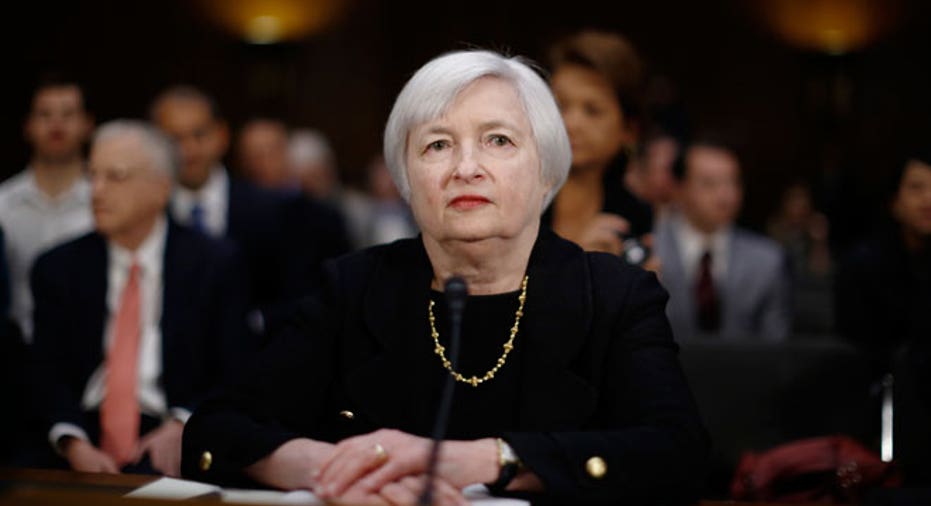Paul Could ' Indefinitely' Postpone Yellen Confirmation

Sen. Rand Paul, (R-KY), plans to make a motion in the Senate to "indefinitely" postpone a confirmation vote for Janet Yellen as the next chair of the Federal Reserve in his fight to win a vote on his legislation to audit the Fed, though the motion will likely fail on a party-line vote, his spokesman said Thursday.
"He's still going to push hard" to win a separate vote in the Senate on his bill, which would increase oversight of the Fed and its policy decisions, spokesman Brian Darling said.
The Senate will take up the vote in January.
The motion is a procedural tactic that at least will put each senator "on the record" with a vote on Paul's efforts. But Yellen's confirmation appears only delayed by his moves and in the broader fight between Republicans and Democrats over presidential appointments.
Last month, Senate Democrats, led by Senate Majority Leader Harry Reid, (D-NV), voted to eliminate the chamber's long-standing rule to require 60 votes to proceed with consideration of nominees.
Democrats say Republicans had used the rule to block qualified candidates and that it needed to be repealed in Washington's current highly-partisan environment. Republicans say the rule was necessary to protect the rights of the minority party and was an important check on presidential power.
While Republicans lost the ability to block nominations with just 40 votes, they retained the right to force long debate -- 30 hours -- on each one and are employing it to delay the Senate's annual end-of-year recess for the holidays.
Reid and the Republican leader, Sen. Mitch McConnell, (R-KY), are discussing a possible compromise to end the standoff. On Tuesday, McConnell publicly-opposed Yellen’s nomination, specifically citing Paul’s proposal.
“The confirmation of a new Fed chief is a perfect time for the Senate to scrutinize the recent actions and the historic mission of the Fed,” said McConnell. “That’s why I support Sen. Paul’s bill to audit the Fed and challenge the Democrats to allow it to come up for debate.”
Darling said Paul hopes any deal will include a commitment by Reid to allow a vote on Paul's Fed bill early next year. Democrats have not ruled that out.
"It's a war of wills now," Darling said. "There have been discussions between Sen. Reid and Sen. Paul on [a vote]."
The Fed has not commented on Paul's legislation. But it has consistently said it is currently audited and overseen by Congress extensively.
"There's this notion that the Fed is not audited or it has all kinds of secret books," Fed chairman Ben Bernanke said at a press conference Wednesday. "As you well know, we have complete openness to the General Accountability Office, the GAO...We have an I.G., inspector general, of our own. We have a private accounting firm that does all the books as well, under very tough standards. We publish regular reports on all aspects of our operation, so we're very open and we are, by all means, willing to work with Congress to see if there's anything they think might be done better or in a more effective way."
But he added, "The Federal Reserve is an independent agency within the government. It's important that we maintain our policy independence in order to be able to make decisions without short-term political interference."
"At the same time, it's up to the Congress to set our structure, to set our mandate, and that's entirely legitimate," Bernanke said. "I think the first thing to agree to is that Congress is our boss."



















